British Agent

Brief Synopsis
Cast & Crew
Michael Curtiz
Leslie Howard
Kay Francis
William Gargan
Phillip Reed
Irving Pichel
Film Details
Technical Specs

Synopsis
In the wake of the Russian Revolution, Stephen Locke, a young British diplomat, argues that Great Britain must recognize the provisional government in order to prevent them from establishing a separate peace with the Germans, which would free German soldiers to face the remaining allies on the Western front. The night that the provisional government falls to Lenin's party, Stephen witnesses Elena Moura shoot a Cossack who is attacking a woman and her child. He helps her escape into the embassy and learns that she is a Communist. Most of the Allies close down their embassies, leaving behind only a token staff. Bored and frustrated by their inability to act, Stephen, LeFarge, the French representative, Tito Del Val, the Italian, and Bob Medill, the American, spend their days playing cards and their nights in a gypsy cafe. One night, Elena comes into the cafe and Stephen persuades her to leave with him. Although politically they are on opposite sides, they fall in love, but Elena's first loyalty is to her country, as she proves when she informs the Central Committee that Stephen is not Britain's official ambassador. Betrayed by the woman he loves, Stephen is also let down by his country, which once again ignores his advice. When the Czar is assassinated, the White army tries to reorganize and Stephen, LaFarge, Medill and Del Val come to their aid. An attempt is made against Lenin's life by Dora Kaplan, and the Russian secret police ask Elena to provide evidence of Stephen's counter-revolutionary actions. She agrees but when she learns that the Russians intend to explode the warehouse where Stephen is hiding, she joins him there, intending to die with the man she loves. Just as the soldiers are about to kill them, Lenin recovers from his wounds and pardons all political prisoners. Elena and Stephen leave for England to start a new life together.

Director

Michael Curtiz
Cast

Leslie Howard

Kay Francis
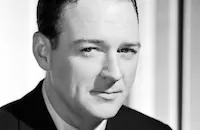
William Gargan

Phillip Reed

Irving Pichel

Ivan Simpson

Halliwell Hobbes

J. Carroll Naish
Walter Byron
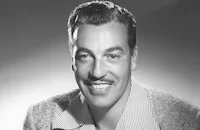
Cesar Romero
Arthur Aylesworth

Alphonse Ethier
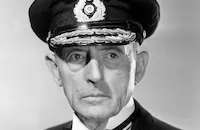
Frank Reicher
Tenen Holtz
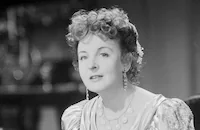
Doris Lloyd
Mary Forbes
Marina Schubert
George Pearce

Gregory Gaye
Paul Porcasi

Addison Richards
Walter Armitage
Olaf Hytten
Zosia Tanina
Joseph Mario
Norman Stengel
Georgia Cooper
Sylvia Marachi
Edith Baker
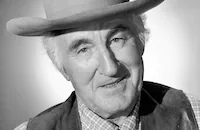
Donald Crisp
Wyndham Standing
Leonid Snegoff
General Savitsky
Vesey O'davoren
Frank Lackteen
Robert Wilber
Lew Harvey
Thomas Braidon
Basil Lynn
Fred Walton
Winter Hall

Claire Mcdowell
Crew
Henry Blanke
Owen Crompton
Bob Davis
Laird Doyle
Leo F. Forbstein
Dave Forrest
Anton Grot
Ernest Haller
Claude Hutchinson
Nicholas Kobliansky
Warren Low
Frank Mcdonald
Scotty Moore
Orry-kelly
Roland Pertwee
Thomas Richards
Al Roberts
Homer Van Pelt

Videos
Movie Clip


Trailer
Film Details
Technical Specs

Articles
British Agent (1934) - British Agent
Once upon a time, though, it was perceived as a distinguished and prestigious work by an up-and-coming artist.
Let's start with that "up-and-coming artist" bit. Mikhaly Kertesz is said to have made the first feature film in Hungary. Fleeing the onset of Hungarian communism, Kertesz relocated to Austria where he distinguished himself enough in the Austrian film business to catch the eye of Jack Warner.
It was after the newly-renamed Michael Curtiz settled in to his new digs at Warner Brothers that Jack Warner fully realized what a find he'd made. Curtiz was a ruthlessly efficient workaholic with little to no social life, who elevated everything he touched above the routine. He was a contract director who excelled at get-'er-done cheapies. His films were popular and profitable, and Warners took to assigning him to increasingly ambitious projects.
In 1930 he was directing Harry Langdon in a modest comedy programmer, A Soldier's Plaything; by 1932 he was leading Warners' first foray into Technicolor with thrillers like Dr. X and Mystery of the Wax Museum; in 1933 he helmed a landmark Pre-code feminist drama Female. Warner Brothers began to wonder if there was anything this guy couldn't do.
It was at this point that the studio purchased the rights to the worldwide bestseller Memoirs of a British Agent. Bruce Lockhart's memoir hit bookstores in 1932 and took the world by storm. It told the true story of Lockhart's 1918 assignment to Russia.
A quick history primer: Czarist Russia was England's ally against Germany during the First World War. Part of the impulse behind the Russian Revolution was a massive popular hatred of that war. The incoming Soviet regime had been premised in part on negotiating a separate peace from Germany and withdrawing. England was rightly terrified of such a prospect, which would instantly return to the field of battle scores of German soldiers then held as Russian prisoners of war, while removing from that same battlefield all the Russian troops. By all logic, English priority should have been to nurture Soviet Russia as an ally, but instead London simultaneously underestimated the staying power of Lenin's regime and refused to grant it any diplomatic legitimacy. Lockhart was given the impossible task of making a tough sell to Lenin but without the official backing of the British government.
Spoiler alert: his mission was spectacularly unsuccessful.
When published in 1932, the book instantly shot to the top of the best-seller lists in both England and America, and appeared in translations across Europe. It was also a huge critical success, and the attention of movie moguls was to be expected with such buzz.
Warner Brothers hyped the movie version without blushing: "the greatest human document of the century," and "the most important dramatic event of the year." It was said to be the most expensive film then produced by Warners, which was an unusual achievement given the financial doldrums that Warners was then struggling to overcome. British Agent was also said to be the first time a movie has been made of a living person's life!
Anyone who has both read the book and seen the movie will recognize that as a classic piece of studio puffery. To claim the movie was an adaptation of the life of a living person suggests a degree of fidelity to Lockhart's life absent from the actual movie.
Part of the problem stemmed from the reason for the book's popularity: it is a gloriously written rant against the stupidity and self-destructive policies of Great Britain at that time. 300-some pages of "I told you so's made for a great read (who doesn't like a good scandal?) but didn't make the English government too pleased. British censors made their position clear to Warner Brothers at the outset: you make this movie at your peril. If the studio wanted to pass British muster and make it into British theaters, the story would have to be softened.
The critique of British foreign policy remains--it was a historical fact and hard to fudge, mind you--but took a back seat to a newly minted romantic plot courtesy of screenwriter Laird Doyle.
In the film, Lockhart (now called Stephen Locke, and played by Leslie Howard) falls in love with Elena Moura, a fiery Soviet true-believer working as a secretary in Lenin's inner circle. The character is a confabulation based on several characters in Lockhart's book (one of whom was named Moura, and was indeed his girlfriend), but with a lot of writer's invention besides.
As played by Kay Francis, Moura is an intriguing and distinctive figure--a forceful woman who sincerely and effectively articulates the revolutionary principles at stake. In the service of her beliefs she is forced into unpleasant compromises of her personal desires; meanwhile Lockhart advances a contrarian cause to hers, but without any deep conviction. The two are warriors in opposite camps, yet lovers. There is some spectacular drama to be had in a premise like that.
Off stage, Francis was having as tumultuous a time as the character she played. The actress was a famous sexual adventurer, who had a brief fling with costar Leslie Howard just because he was there.
Such things were kept out of the papers, but the Hollywood press did pick up on Francis' life-threatening injury during production: she severed an artery in her right hand one evening and was only rescued due to the quick-thinking of her maid, who hastily prepared a tourniquet to staunch the bleeding.
According to the story, she had gone out to walk her dog and accidentally locked herself out of her own home. She broke the glass door to let herself back in, and cut herself in the process. The maid who saved her life? She was asleep at the time, and Kay had to waken her to get her assistance.
If this story sounds far-fetched, you're not alone. Francis' biographers, Lynn Kear and John Rossman, spoke to some of her friends who speculated that the incident was a suicide attempt awkwardly covered up in the media to justify her bandaged wrists. The truth is now lost to us--Francis made no remark on the incident in her own diary and never spoke about it--so speculation is all that remains.
To her credit, Kay Francis brought her character crackling to life. If her own private existence was in arrears, she turned that personal turmoil into public entertainment. Aside from Curtiz's visual flourishes, she's easily the best thing about British Agent.
For his part, Howard was something of a liability. The actor had script approval, and emerged from the experience delighted with the end result and eager to work again with Curtiz and producer Henry Blanke, but to modern eyes his character is too much a caricature of the stiff-upper-lipped Brit.
Contemporary audiences enjoyed British Agent and pushed it into higher than usual profits for a Warners picture. By year's end the studio could comfortably say its financial troubles were in the rear-view mirror.
In the years between Lockhart's disastrous mission in 1918 and 1934, any doubts about the longevity of the Soviet state had been laid to rest. The appeal of Lockhart's book lay in its insider's account of the inception of the defining struggle of the 20th century. Despite some silly moments and an uninspiring leading man, the film of Lockhart's book is a fascinating window into what a pre-Cold War audience thought about the place of communist Russia in the world. Curtiz's greatest hits yet lay in his future, but this forgotten curio from his early days rewards those who seek it out.
Director: Michael Curtiz
Screenplay: Laird Doyle (screenplay); R.H. Bruce Lockhart (book); Roland Pertwee (British dialogue contributor, uncredited); Pierre Collings (dialogue contributor, uncredited)
Cinematography: Ernest Haller
Art Direction: Anton Grot
Film Editing: Thomas Richards
Cast: Leslie Howard (Stephen 'Steve' Locke), Kay Francis (Elena Moura), William Gargan (Bob Medill), Phillip Reed (Gaston LeFarge), Irving Pichel (Sergei Pavlov), Ivan Simpson ('Poohbah' Evans), Halliwell Hobbes (Sir Walter Carrister), J. Carroll Naish (Commissioner of War Trotsky), Walter Byron (Under Secretary Stanley), Cesar Romero (Tito Del Val).
BW-81m.
by David Kalat
Sources:
Kingsley Canham, The Hollywood Professionals, Volume 1: Michael Curtiz, Raoul Walsh, Henry Hathaway.
Lynn Kear and John Rossman, Kay Francis: A Pasionate Life and Career.
Bruce Lockhart, Memoirs of a British Agent.
James C. Robertson, The Casablanca Man: The Cinema of Michael Curtiz.

British Agent (1934) - British Agent
Quotes
Trivia
41 different sets were constructed for the film; there were 1500 cast members; 3000 rounds of ammunition was shot in the riot scenes.
'Warner, Jack' wanted to send a film crew to Russia for location shots, but his request was denied.
Notes
Contemporary reviews note that the story bears only a slight resemblance to the novel, which was based on R. H. Bruce Lockhart's own experiences in Russia. At the time of Dora Kaplan's attempt on Lenin's life, Lockhart was arrested as an accomplice and later exchanged for a Russian held by the British. A news item in Film Daily notes that Pierre Collings was writing dialogue for the film. A press release notes that forty-one different sets were used, 1,500 people were in the cast, and 3,000 rounds of ammunition were fired in the riot scenes. Call Bureau Cast Service lists Corinne Williams as "Dora Kaplan" while the studio cast sheet credits Zosia Tanina. Daily Variety reported that Jack Warner had authorized negotiations between the studio and the Soviet government for permission to send in a film crew for location shots. If permission had been received, this would have been the first American film crew to work in Soviet territory. According to modern sources, Frank Borzage was originally scheduled to direct this film.















